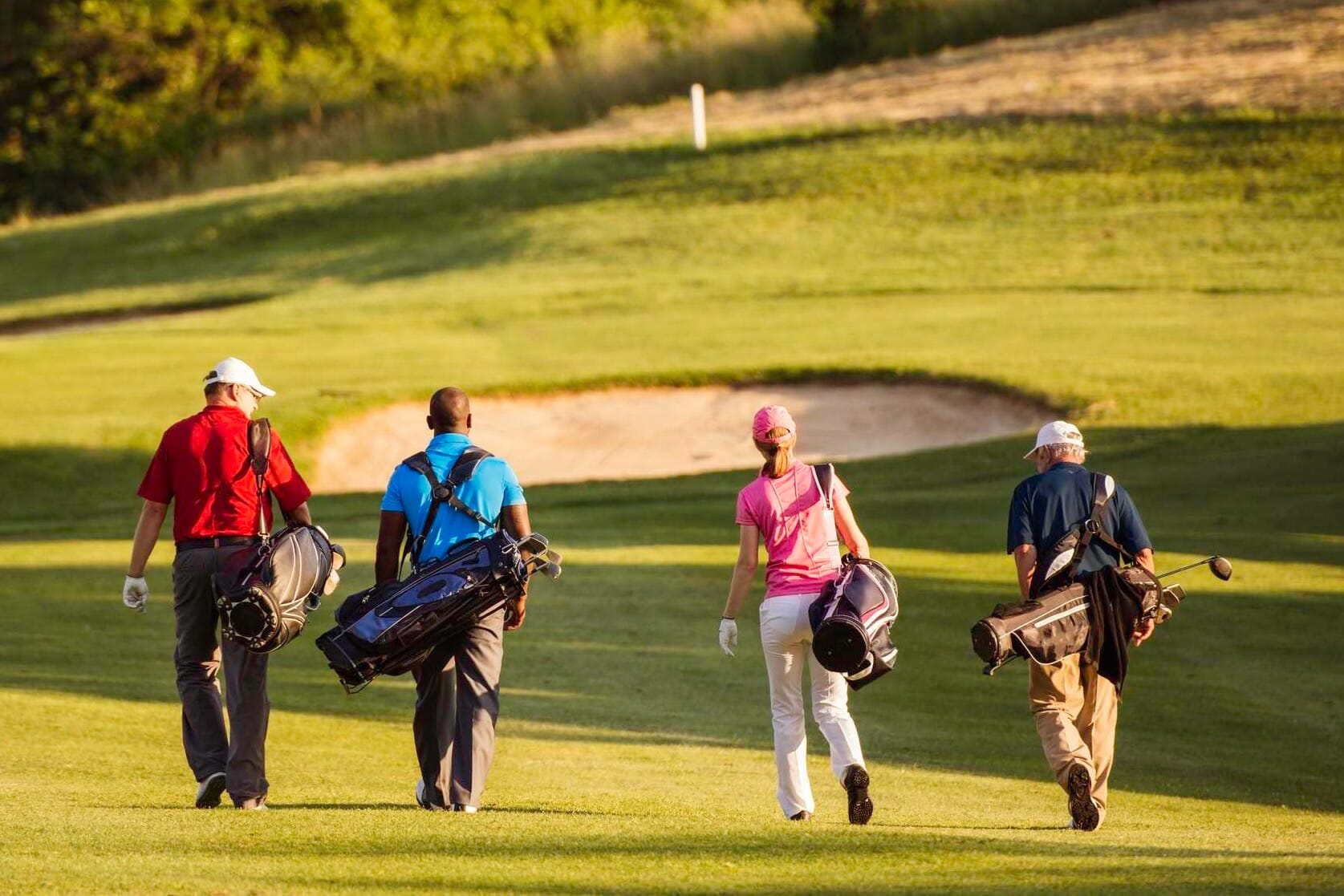The first ever Golf and Health Week takes place next week (15-19 April) and will aim to encourage golfers, non-golfers and lapsed golfers into taking part in the sport.
The dedicated campaign for Golf & Health is aiming to raise awareness of the health benefits of golf for people of all ages and abilities and encourage golfers, non-golfers and lapsed golfers into taking part in the sport.
A number of health-related themes will be promoted including:
- Monday 15 April: Fitness – professionals and amateurs
- Tuesday 16 April: Mental health (including dementia)
- Wednesday 17 April: Disability golf
- Thursday 18 April: Golf for everyone – featuring various health projects (e.g. Parkinson’s, loneliness, stroke and other programmes that can benefit health)
- Friday 19 April: Club level – focus at golf clubs (e.g. fitness, food, drink, gym classes)
The collaborative campaign will run across digital and social media channels using the hashtag #GolfHealthWeek and include content focused on highlighting the physical and mental health benefits of playing golf and projects being delivered by golf bodies and clubs.
Focusing primarily on Great Britain and Ireland, it will be co-ordinated by The R&A with the support of the European Tour, the Ladies European Tour, The Professional Golfers’ Association and the Golf Foundation, as well as national associations including England Golf, Scottish Golf, Wales Golf, the Golfing Union of Ireland and the Irish Ladies Golf Union.
A number of other organisations have expressed interest in supporting the week, including EDGA (formerly the European Disabled Golf Association), the PGAs of Europe and Golf Australia.
The campaign is also to be backed by professional golfers including Annika Sorenstam, Brooke Henderson, Padraig Harrington and Zach Johnson, who are ambassadors for the Golf and Health Project.
The dedicated week builds on the work of the Golf and Health Project, which since 2016 has studied the many and varied health and wellbeing benefits of golf, considered any risks and had research published regularly in international, peer-reviewed journals.
“The lead that the R&A have taken in relation to the promotion of Golf and Health has been fantastic,” said CGI Club Support and Participation Manager Anne McCormack. “The research that has been undertaken to show the physical and mental health benefits of golf continues to challenge perceptions of the game. Throughout our Get into Golf initiatives, we have given participants pedometers to track the amount of steps they take playing golf and there has always been an element of surprise at the results.
“We have introduced fitness as an element to our Boys and Girls Get into Golf frameworks through the use of Fundamental Movement Skills in Stages One to Four and recently we have added further age and standard appropriate fitness activities for golfers in Stages Five and Six of Golf4Girls4Life. For 2019, CGI are excited to continue working with CARA and various other groups to create a sustainable plan that supports all golfers and showcases the health benefits to golfers who we would not have worked with in the past.”
To drive interest and encourage activity in the days before the dedicated week, golfers will be asked to tweet their steps achieved and calories burned from any golf they play, again using #GolfHealthWeek. The week then finishes on Good Friday at club level, with golfers to be encouraged to head for the fairways over the Easter holiday weekend.
Last year, a global consensus amongst leaders in public health, public policy and sport backed golf in the race to tackle physical inactivity and the prevention of illnesses such as heart disease, stroke, diabetes and cancer of the breast and colon.
Evidence linking golf and health, commissioned by the World Golf Foundation and supported by The R&A, was presented at Westminster following research led by the University of Edinburgh and published in the British Journal of Sports Medicine.
Previous research has also highlighted that those that play golf live five years longer than those that don’t play, while the sport has been shown to have self-esteem and self-worth benefits.























Leave a comment